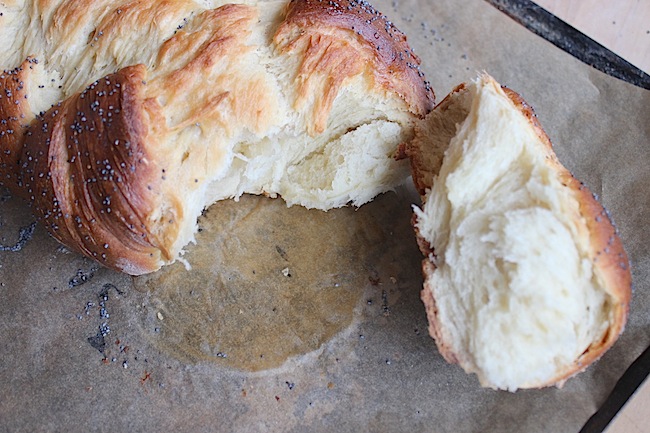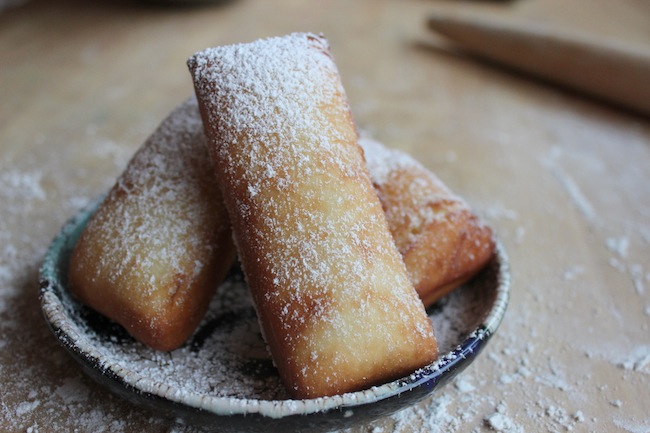
Weekends are for pancakes. Or waffles. Or lining up warm loaves of bread on the counter, bulwarks of comfort against a difficult week. Any kind of putzing around in the kitchen, really. Big, project cooking. Meditative, repetitive cooking. Dishes that cook from breakfast until dinnertime.
Weekends in the kitchen might start at loose ends, but gradually they lead you through to purpose (those dishes to do) and satisfaction (provisions for the week).
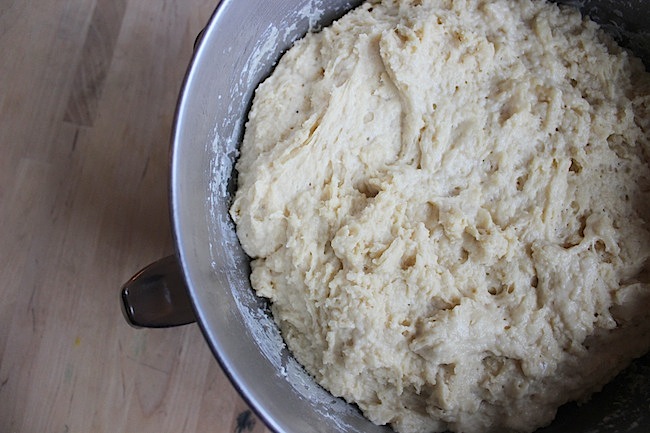
So it was that we found ourselves glancing around the weekend kitchen looking for something that needed doing. But nothing too taxing, given the state of the weekend brain. And there — perfect — a big metal bowl in the fridge, full of bubbly, flat-topped dough, the result of an overly ambitious plan to make Friday’s challah at home. Folks, I know what we’re going to do today.
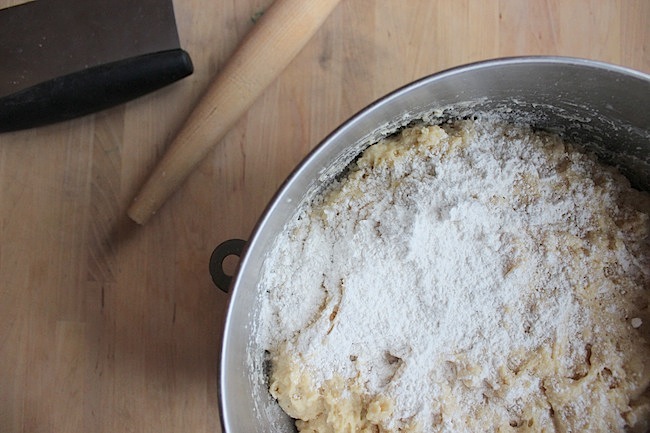
We’ve long been fans of the basic bread dough from The New Artisan Bread in Five Minutes a Day. (You can find the master recipe here.) It is the antithesis of project cooking: instead of hours of hands-on work in carefully timed stages, you stir. And wait. Time and water do the work for you.
But what I had in the fridge was challah dough from Artisan Bread, enriched with four eggs, a half cup of butter, and a half cup of honey (which sounds bold, but is nothing next to their brioche, with its eight eggs and one and a half cups of butter). This was just the thing for project cooking.
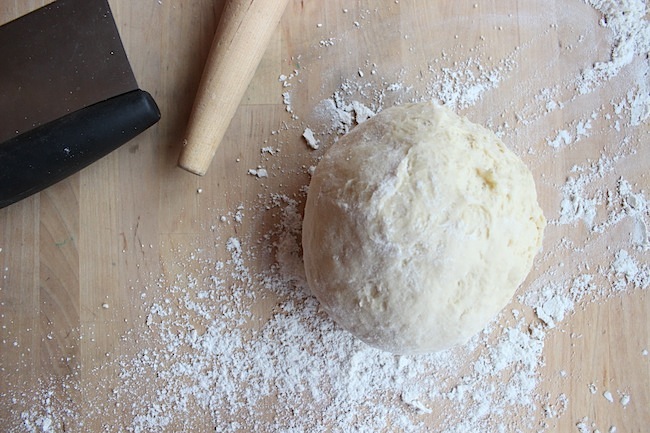
Fortunately, we had a house full of hungry people. I would pull out the heavy pot for deep-frying, something you would never do on a weekday, or any sane weekend. I would make the sweet and savory Eastern European pletzel. I would belatedly bake up that challah. All from one batch of dough.
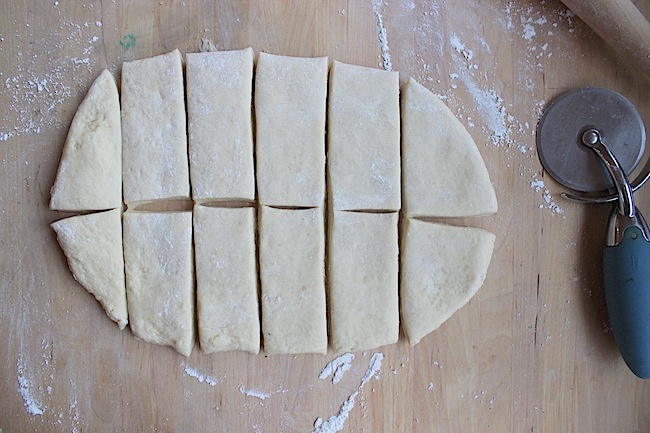
This is easily the easiest and most reliable way you will ever make doughnuts — let’s call them “beignets” because so deep was my weekend laziness that I cut them into long rectangles for frying. No pesky scraps to re-roll that way.
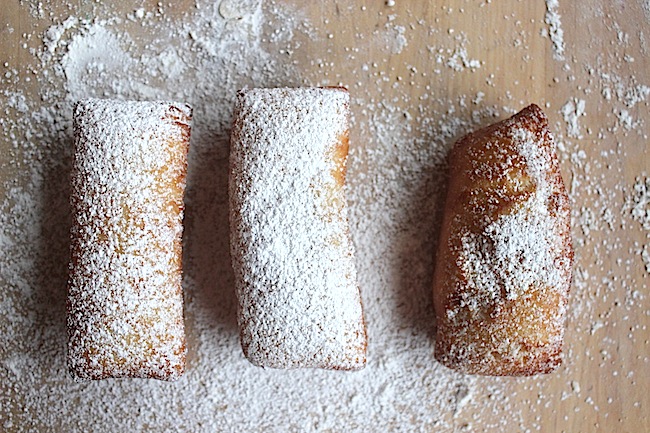
The dough is rich, but not too sweet and, after a nice rest on the counter, very compliant. Co-author Zoë François tucks a little square of dark chocolate inside hers.
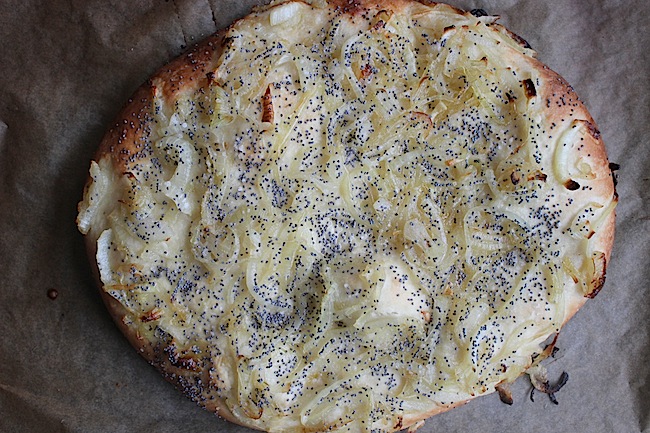
The pletzel — new to me and introduced in the book as a favorite of co-author Jeff Hertzberg’s grandfather — belongs in the pantheon of savory-sweet breakfast foods.
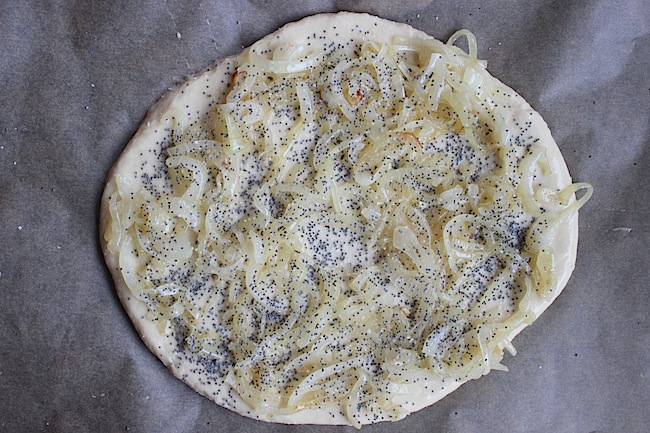
The dough, sweetened with honey, is coaxed into a Frisbee-sized disc and covered with poppy seeds and just barely browned onions, which will get sweeter and crunchier in the oven.
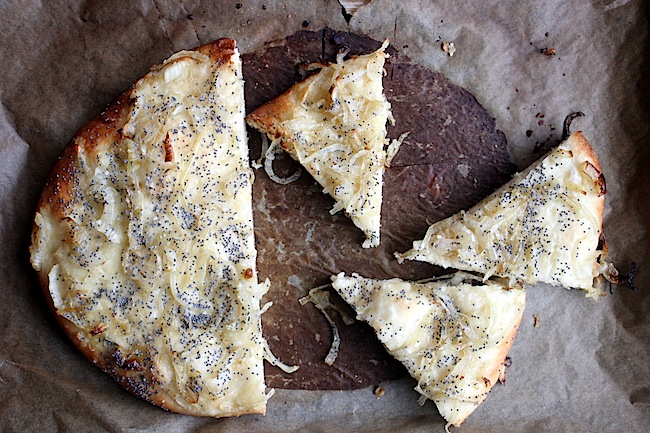
Then, of course, that challah. As easy and reliable as this recipe is, I still don’t have the two hours it takes to rise and bake on a weekday night. But on a weekend morning, with more putzing about left to do in the kitchen, there’s no better use of my time.
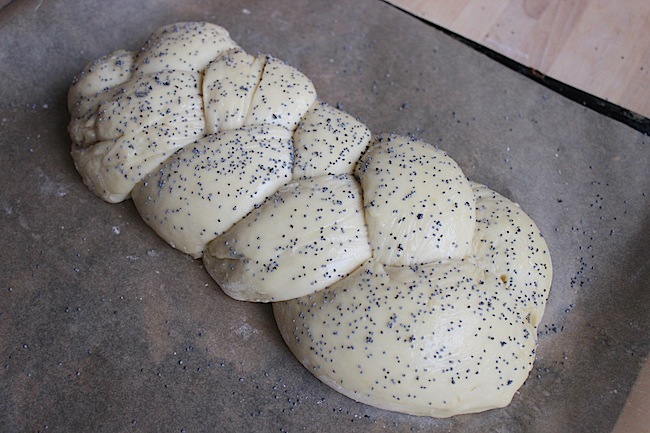
The Artisan Bread recipe relies on a lot of oven spring — that means that the dough does a fair bit of its expanding in the hot oven, rather than on your counter. With a round or oblong loaf, slashing the top makes room for all that extra puffing and rising.
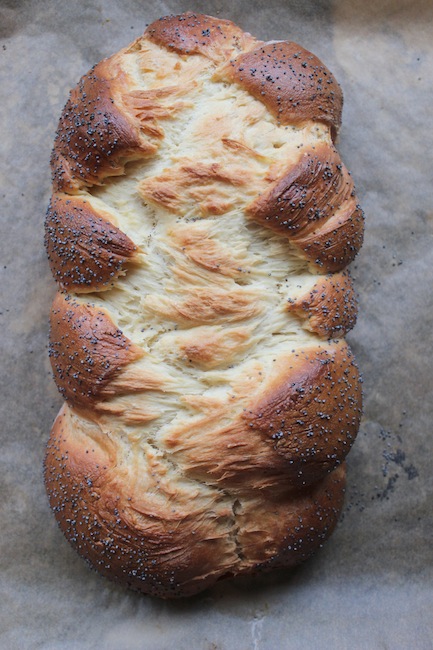
The braided challah, however, seems to explode at the seams, puffing up like a proud old gentlemen tucking his thumbs in his lapels and throwing out his chest. It’s not the classic look, but it is lovely. And rich and delicious and just the right thing after a long weekend day in the kitchen.
